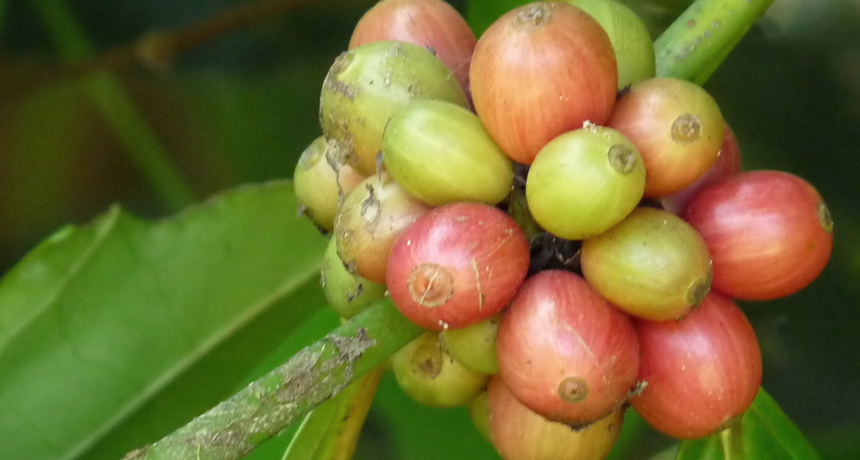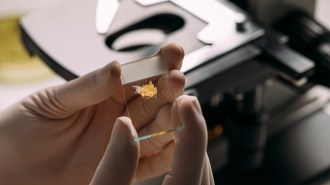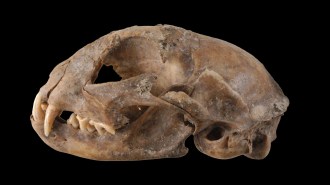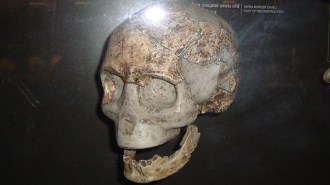Source of coffee’s kick found in its genetic code
Caffeine genes evolved at least twice in plants

DOUBLE SHOT Coffee doubled up on caffeine-making genes, possibly giving itself an evolutionary edge. Those genes evolved independently from similar ones found in tea and chocolate plants.
Jose/Wikimedia Commons (CC BY-SA 4.0)







